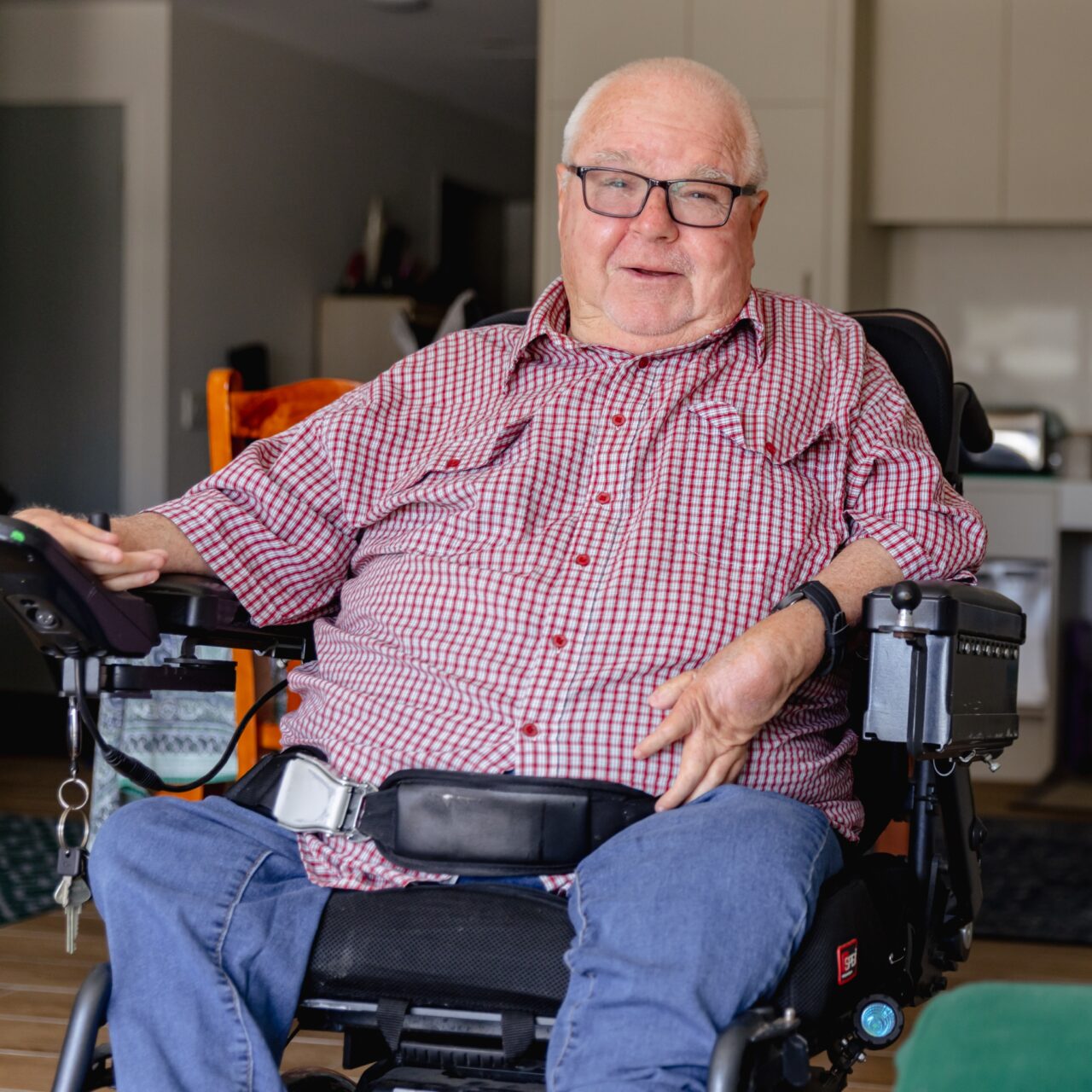How to make the most of working with ndis providers near me
How to make the most of working with ndis providers near me
Blog Article
The Value of Impairment Providers and the Effect of Home Treatment Providers
Special needs services are crucial for boosting the lives of people with handicaps. They offer essential assistance that cultivates self-reliance and health. Home treatment suppliers play a vital duty in this structure by delivering personalized help tailored to unique demands. This support not just benefits people but additionally alleviates the stress on family members caretakers. Recognizing these dynamics exposes a much deeper connection between community, freedom, and treatment. What lies ahead for these critical solutions and their effect?
Recognizing Handicap Solutions
While lots of may not totally comprehend the intricacies of disability solutions, they play a necessary function in improving the lifestyle for people with specials needs. These services include a broad variety of assistance systems made to help individuals in steering everyday challenges. From providing accessibility to education and learning and work chances to helping with health care and recovery, special needs solutions intend to advertise independence and inclusion.Key components consist of situation management, campaigning for, and assistive modern technology, which help people accomplish individual objectives. In addition, community-based programs often cultivate social connections, decreasing feelings of isolation. Different organizations and federal government entities collaborate to assure that individuals receive customized assistance according to their one-of-a-kind needs. Understanding these services is essential, as they encourage individuals with specials needs to lead fulfilling lives, actively join their neighborhoods, and recognize their possibility. Inevitably, reliable disability services are foundational to promoting equity and accessibility for all.

The Role of Home Treatment Providers
Home care suppliers play an essential role in providing customized assistance to individuals with handicaps, enabling them to keep freedom in their own homes - support at home provider. These experts provide a vast range of solutions customized to satisfy the unique demands of each person, ensuring that assistance is both efficient and appropriate. They assist with everyday activities such as meal preparation, personal hygiene, and drug management, which are crucial for improving the high quality of life for those they serve.Moreover, home care suppliers act as a critical web link between individuals and their healthcare needs, helping with communication with doctor and collaborating required services. Their visibility likewise reduces the burden on family caregivers, promoting a healthier dynamic within households. By cultivating a helpful and risk-free environment, home treatment carriers empower individuals with handicaps to engage with their communities, pursue individual passions, and inevitably lead satisfying lives while staying in the comfort of their homes
Personalized Treatment and Support
Customized treatment and support are crucial components of effective home care services, as they deal with the individual requirements and preferences of each individual with a disability. Home care companies assess the unique demands of each client, establishing customized strategies that prioritize their comfort, health and wellness, and wellness. This personalized approach not only enhances the top quality of treatment yet also promotes a sense of self-respect and respect.Caregivers are trained to adapt their techniques, making certain that solutions line up with the customer's lifestyle, cultural history, and personal preferences. Normal communication in between customers and caretakers helps to refine treatment strategies, addressing any kind of changing requirements promptly. In addition, the emphasis on personalized support encourages the advancement of count on and connection, which can significantly boost the general caregiving experience. Inevitably, personalized treatment and support empower individuals with handicaps to receive the support they need in a way that feels respectful and affirming.
Enhancing Freedom for Individuals
Enhancing self-reliance for people with specials needs is a basic goal within home care services. These solutions supply tailored assistance that equips clients to take part in day-to-day activities autonomously (disability support). By giving support with personal treatment, flexibility, and family jobs, home treatment carriers allow people to maintain a sense of control over their lives. This autonomy cultivates self-worth and resilience, necessary components in the trip toward independence.Furthermore, home care solutions frequently include skill-building chances that teach individuals adaptive techniques, boosting their capability to perform jobs separately. This support not just satisfies immediate demands yet likewise promotes lasting self-sufficiency. Furthermore, caretakers can aid in producing an atmosphere that accommodates individual choices and capacities, making sure that customers feel comfortable and safe and secure. In general, the concentrate on enhancing independence through home treatment services is substantial in advertising self-respect and lifestyle for individuals with handicaps
Building Neighborhood Inclusivity
While fostering individual self-reliance is crucial, constructing neighborhood inclusivity for individuals with specials needs is similarly vital. Inclusivity boosts social connections, permitting individuals to take part completely in area life. Community interaction campaigns, such as understanding campaigns and inclusive occasions, play a significant duty in breaking down obstacles and tough misconceptions about disabilities.Accessible public rooms and transport options are key parts that assist in involvement and combination. Collaboration among neighborhood organizations, companies, and advocacy teams can create helpful networks that encourage inclusivity. In addition, training community members on impairment recognition promotes compassion and advertises a society of acceptance.Ultimately, a comprehensive area not just advantages people with handicaps yet improves the entire social textile by welcoming diversity. By comprehending and addressing the one-of-a-kind needs of people with specials needs, communities can cultivate an environment where every person has the chance to thrive and contribute meaningfully.
The Effect on Caregivers and family members
Several households and caretakers of individuals with specials needs experience a profound influence on their day-to-day lives and emotional health. The obligations linked with caregiving can lead to substantial physical and psychological strain, typically leading to caregiver tiredness. This can diminish their capability to give efficient support and create a caring environment. Furthermore, the emotional toll can cause sensations of isolation and stress and anxiety, influencing family members dynamics and relationships.Access to disability solutions and home care service providers can reduce several of these burdens by using necessary support and resources. These services make it possible for households to share caregiving obligations, enabling caregivers to take breaks and focus by themselves health. Boosted assistance networks foster a sense of community, which can improve emotional strength. Ultimately, the existence of comprehensive disability solutions especially effects families, promoting far better health results and improving the lifestyle for both caregivers and individuals with impairments.
Future Trends in Disability Providers and Home Care
As the landscape of special needs services and home treatment advances, modern technology assimilation is coming to be increasingly noticeable. This shift permits even more personalized assistance versions that cater to individual requirements and preferences. By utilizing innovative tools, companies can improve treatment high quality and improve end results for those they offer.
Modern Technology Assimilation in Care
The integration of technology in special needs solutions and home care is reinventing the method treatment is delivered and experienced. Advanced devices such as telehealth platforms, wearable gadgets, and clever home systems enhance ease of access and communication in between caretakers and customers. These technologies facilitate real-time tracking of health and wellness metrics, allowing for timely treatments and personalized treatment modifications. In addition, mobile applications equip people with handicaps to manage their own care strategies and accessibility sources a lot more efficiently. Automation and artificial knowledge are improving management tasks, freeing up caregivers to focus on offering top quality support. As technology proceeds to Get More Info develop, its integration within these industries guarantees to enhance end results, boost self-reliance for clients, and enhance source allocation for suppliers.
Personalized Support Models
While conventional care designs often embrace a one-size-fits-all strategy, the future of handicap services and home care is progressively leaning towards individualized support designs that provide to the distinct demands of each person. These designs emphasize more information partnership between treatment suppliers, people, and their family members, ensuring that services align with individual choices and specific difficulties. By leveraging evaluations and comments, suppliers can tailor treatments, whether they entail daily living aid, healing tasks, or emotional assistance. This individualized strategy not just boosts the top quality of treatment but also advertises better self-reliance and wellness amongst individuals with disabilities. As recognition of these advantages expands, tailored support designs are poised to come to be the criterion in special needs services and home treatment, transforming the landscape of treatment delivery.
Regularly Asked Inquiries
What Certifications Do Home Treatment Providers Generally Required?
Home treatment service providers generally call for a secondary school diploma or matching, conclusion of a state-approved training program, accreditation in mouth-to-mouth resuscitation and initial help, and often a history check to ensure safety and security and reliability for customers.

Just How Are Handicap Solutions Funded and Accessed?
Special needs services are generally funded via federal government programs, exclusive insurance policy, and gives. Accessing these services commonly involves analyses, qualification standards, and applications, which differ by location and certain needs of people seeking assistance.
Can Home Treatment Providers Be Custom-made for Specific Disabilities?
Home treatment services can certainly be tailored to fulfill the one-of-a-kind needs of people with specific impairments. This personalization enables for customized assistance, enhancing the high quality of treatment and improving the general health of customers.
What Prevail Obstacles Faced by Home Treatment Providers?
Usual challenges dealt with by home treatment suppliers include staffing shortages, insufficient training, interaction obstacles with customers and family members, differing levels of customer needs, managing insurance coverage complexities, and guaranteeing constant top quality of care throughout different settings.
How Can Families Find Reliable Special Needs Providers in Their Area?
Households can find trusted handicap services her response by researching regional agencies, seeking advice from on-line directory sites, looking for recommendations from health care experts, and getting in touch with support system. Extensive examinations and interviews with provider assist assure high quality and compatibility with demands. Individualized treatment and support are essential parts of efficient home treatment services, as they provide to the private needs and choices of each individual with an impairment. By providing help with personal treatment, movement, and home jobs, home treatment companies allow people to maintain a sense of control over their lives. The assimilation of modern technology in disability solutions and home care is reinventing the means care is delivered and experienced. While standard care models typically take on a one-size-fits-all strategy, the future of disability services and home care is significantly leaning towards personalized support designs that cater to the unique requirements of each person. Home care services can indeed be customized to fulfill the special needs of individuals with particular handicaps.
Report this page